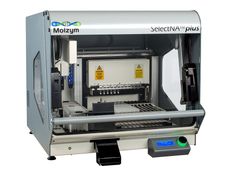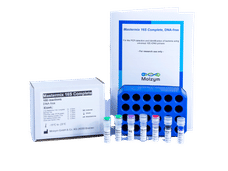Sigma-Aldrich Joins RNAi Consortium
Advertisement
Sigma-Aldrich Corporation has entered into an agreement with the Massachusetts Institute of Technology (MIT) to serve as a scientific collaborator and distribution partner of The RNAi Consortium (TRC). The consortium is based at The Broad Institute in Boston and is comprised of seven world-class research institutions and four commercial partners. Over the next three years, this consortium's goal is to create a comprehensive library of RNA interference (RNAi) reagents designed to reduce expression of specific human and mouse genes thereby enabling scientists to elucidate the function of the targeted gene. In addition to participating as a sponsoring member of the consortium, Sigma-Aldrich will commercially distribute clones, purified DNA and viral stocks from the RNAi libraries, facilitating their use by researchers worldwide.
The consortium involves scientific collaborations between principal investigators at seven research institutions: Massachusetts General Hospital, Harvard Medical School, Dana-Farber Cancer Institute, The Broad Institute, Whitehead Institute for Biomedical Research, Massachusetts Institute of Technology and Academia Sinica. In addition to Sigma-Aldrich, TRC also includes corporate partners Bristol-Myers Squibb, Eli Lilly and Novartis.
"These 11 world-class entities will make common cause in a unique collaborative group to create a public good: a comprehensive set of reagents to be used in thousands of laboratories," said Dr. Eric S. Lander, Director of the Broad Institute and one of TRC's principal investigators. "In addition, the organizations will each benefit from sharing their expertise to advance the technology and to accelerate its systematic application in basic biomedical research and drug discovery."
RNAi is a natural cellular process that is involved in the regulation of gene expression. In recent years scientists have developed methods that allow RNAi to be exploited as a research tool to decipher the function of particular genes. The goal of the consortium is to create widely applicable RNAi research reagents that will enable biomedical researchers to discover the key genes underlying normal physiology as well as disease states. It is widely believed that RNAi will revolutionize the way in which life science research is conducted and is expected to have a major impact on the understanding of the genetic basis of diseases such as cancer, arthritis and Alzheimer's.



























































